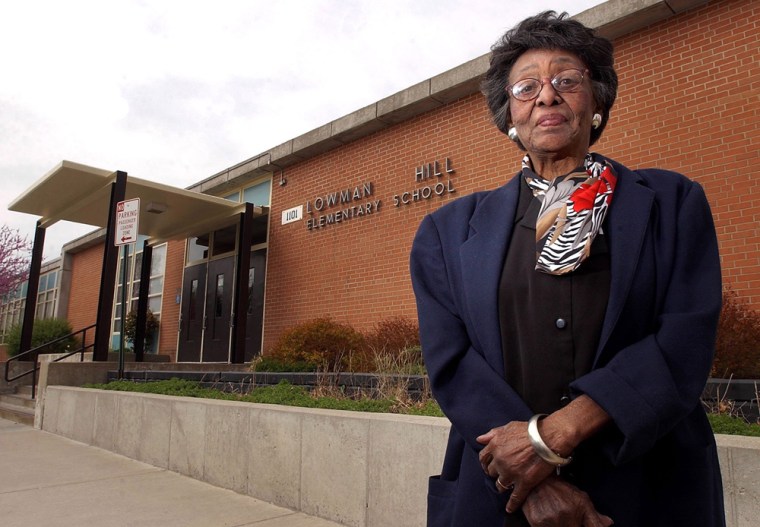The last surviving plaintiff in Topeka's Brown v. Board of Education case, which led to the historic 1954 Supreme Court ruling outlawing segregation in public schools, has died at 88.
Zelma Henderson died Tuesday in Topeka, six weeks after being diagnosed with pancreatic cancer.
Her son, Donald, said she wasn't physically imposing, but when she was passionate about something, "She was just fire."
In 1950, Henderson signed onto the litigation on behalf of her children challenging Topeka's segregated schools. In all, 13 black parents in Topeka, including the Rev. Oliver Brown, took part in the federal case.
The plaintiffs lost in U.S. District Court, but the case was appealed to the U.S. Supreme Court, along with similar cases from Virginia, South Carolina and Delaware.
The high court's unanimous ruling overturning school segregation came on May 17, 1954.
As a child in the 1920s and '30s, Henderson had attended desegregated schools in the western Kansas town of Oakley. She was disgusted when she learned her own children would be required to attend segregated schools in Topeka.
Her children were forced to attend a school that was 10 blocks farther away from their home than a whites-only school.
"I wanted my children to know all races like I did," Zelma Henderson told The Associated Press in 2004. "It means a lot to a person's outlook on life. No inferiority complex at all, that's what I wanted for my children as far as race was concerned."
The Brown v. Board National Historic Site is now operated by the National Park Service in a formerly segregated school building.
"Her passing is a rather large milestone in the history of the case and that period of our history," said Dennis Vasquez, superintendent of the historic site. "It puts it in more of a historical perspective because there are no longer any living plaintiffs in the Topeka case."
